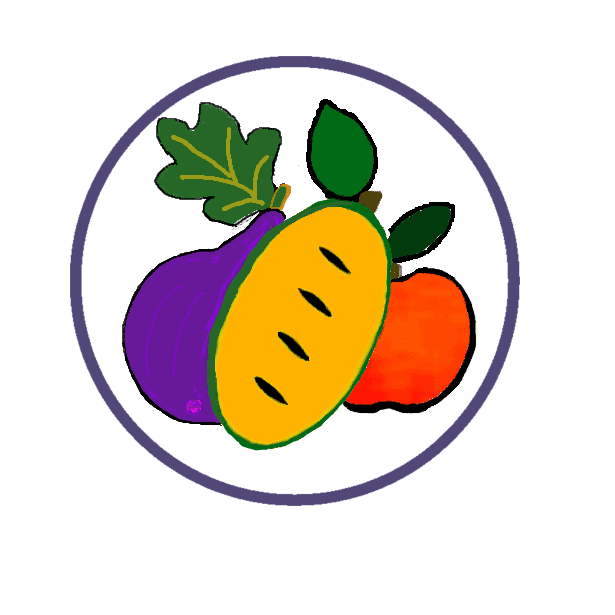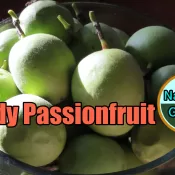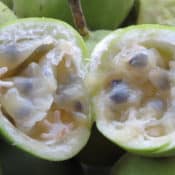Hardy Passionfruit Vines For Sale
A little-known and much undervalued fruiting vine native to the Eastern USA, passionfruit, (also known as maypop), is truly an amazing plant worthy of much wider planting. The life-size, gorgeous flowers, seen in the picture above, would alone qualify it for ornamental planting, yet it also produces a tasty and useful fruit. This family spans the tropics and is common and loved the world over, from Hawai’i to South America to India and beyond. Yet, here in the fields, fencelines and railroads of the Eastern USA, we have our very own cold-hardy species, that also makes an edible fruit that somehow escapes care or notice. This is one of those things that when you discover it, it really makes you wonder why almost no one gives this plant any notice. Perhaps one of the reasons is that the fruit often times tastes bland and uninteresting. That was our thought for many years. However, in 2017 we discovered in Lexington, KY a small planting of passionfruit vines that not only were making much larger than average fruits, they also tasted very tangy and delicious! They tasted nearly as good as their tropical cousins, with a refreshing juiciness and a pineapple/banana flavor. We saved seeds from these superior vines and in 2018 are starting them in our nursery and offering them for sale.
We’re pleased to be offering these superior passionfruit genetics along to you.
On Hardy Passionfruit
Passionfruit vines, being hardy natives, are little touched by insects or disease of any kind, and are quite productive of fruits. The vines grow vigorously and will soon climb and cover arbors, fences, decks, etc, making a wonderful natural screen and shade. One vine seems able to produce about 15-20 fruits per season, which is September-November. The vines and leaves, when made into teas, powders or tinctures are a potent relaxant and sleep aid and sold in the health food industry for that use. The flowers come on around July-August and are just stunning, and a favorite of bumble bees. The name “passionfruit” was given to the vines not because they invoke amorous feelings but because early missionaries in what would become the USA imagined symbols of the crucifixion of Jesus Christ within the anatomy of the unusual flowers themselves. This is interesting and worth reading about. Here is a good link on wikipedia about the native passionfruit: https://en.wikipedia.org/wiki/Passiflora_incarnata .
Showing all 2 results



